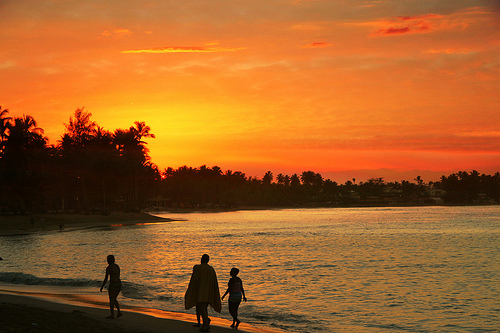The Dominican Republic, on the island of Hispaniola, is the second largest Caribbean nation. Despite its small size, it is a country with a diverse landscape. It is especially known for its typically Caribbean white sand beaches. Expats will also be treated to abundant natural beauty in the tropical rainforests, valleys, lakes, rivers and semi-desert areas that are found across the country. The Dominican Republic draws a steady number of expats, and its popularity has only been increasing in recent decades.Along with the pleasant tropical weather, factors such as affordability of property and lucrative investment opportunities also contribute to the Dominican Republic’s attractiveness as an expat destination.
For expat families that are moving to the Dominican Republic with children, here are some points to keep in mind.
Visa and residency
Overseas visitors to the Dominican Republic must first verify if they are require a visa for their travel and stay. Those who wish to stay less than 90 days in the country are not required to have a visa. But those who will be staying for a longer period of time must have an appropriate visa. Expats can request a visa at the Dominican Republic’s consulate or embassy in their home country.
Expats who plan on settling down permanently in the Dominican Republic will have to apply for a resident visa. This is a single entry visa that must be used within 60 days of the issue date. Once they arrive in the country, they need to approach the Immigration Department within 60 days in order to apply for a residence permit or cedula. Expats with a legal Dominican visa need to obtain dependent visas for their family members. Children do not require any special documents to travel in and out of the Dominican Republic as long as the same individual accompanies them each time.
Accommodation
The Dominican Republic is mostly a safe country, but it is still always wise to pay some attention to security, especially when moving with children. It is commonly believed that the only way to live safely in the Dominican Republic is to move into a gated community. However many expats argue that this is not necessary. In fact, gated communities may actually attract theft. The north coast area is a hugely popular place to live and a number of expat communities can be found here. Santo Domingo, the capital city and one of the oldest Caribbean cities, also has a considerable expat population. Expats who prefer to live in gated communities can explore places such as Punta Cana and Puerto Plata, which are resort towns.
Education system
Expat parents will be happy to know that the Dominican Republic has plenty of good schools. There are a variety of multinational schools that teach in languages other than Spanish. Most expats prefer to send their children to international schools. Some of the reputed international schools in the capital city include the American School of Santo Domingo, Saint George School and Ashton School. In the town of Jarabacoa in the La Vega province, there is the Doulos Discovery School, and in La Romana, there’s the Abraham Lincoln School.
Activities for children
Perhaps the best part of moving to the Dominican Republic with children is the number of enjoyable activities available for them. There are, of course, the famous beaches where the entire family can either relax or engage in some snorkeling, windsurfing or sailing. For older children, there are more adventurous activities like kayaking, surfing and river rafting. The Dominican Republic is also popular for horseback riding. Many of the ranches have Creole horses that are trained to go slowly, thus ensuring children’s safety. Something that is sure to thrill every child is the activity of whale watching between January and March, when scores of humpback whales migrate to the Samana Bay on the Dominican Republic’s north coast. A boat tour will take your family out into the bay where you can get a safe, but up-close glimpse of the incredible creatures. Many of these tours also feature educational commentary about the whales, a bonus for parents who would like their kids to learn something and have fun at the same time.
Can we improve this article? Something wrong? Let us know in the comments.
Sources: [1]

